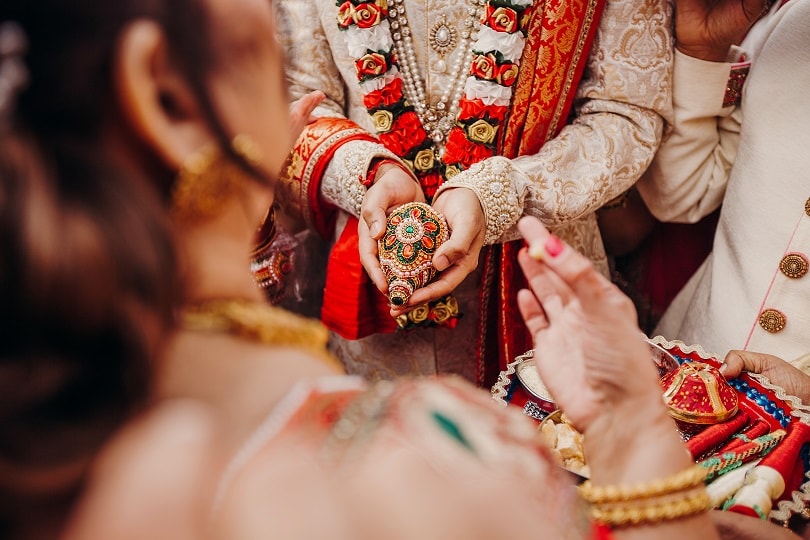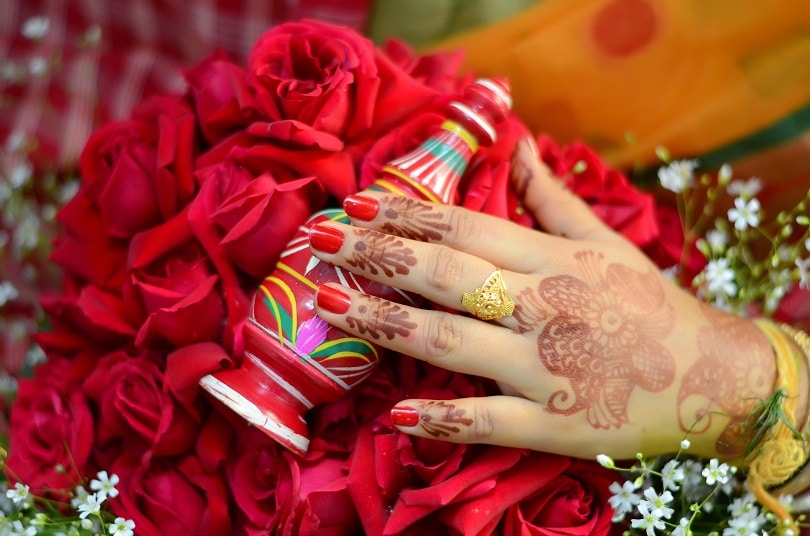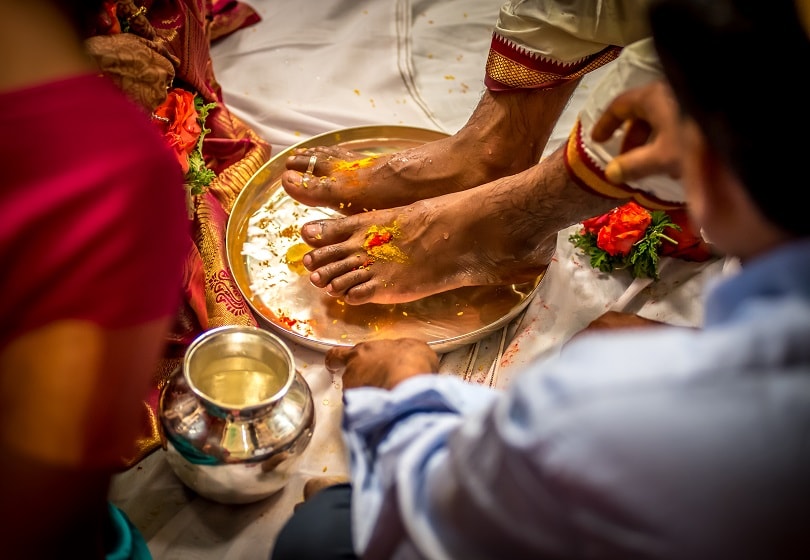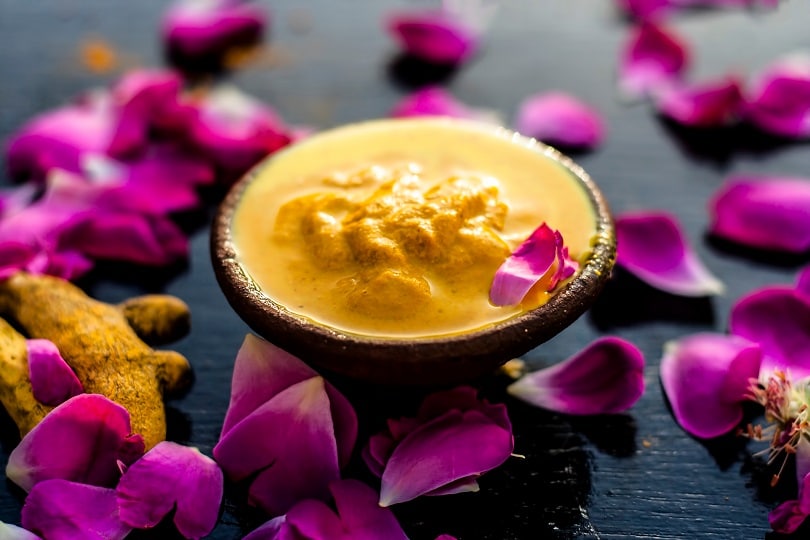The Indian wedding is all about pomp and show. From looking for a wedding banquet to going on a bridal shopping spree, you have a lot on your mind. But, the glamour and auspiciousness of the wedding ceremonies is not all what it seems. There are some shady superstitions in India that force degrading Indian marriage rituals on brides and grooms. We need to call them out, now. Here are 9 such practices and why we must abolish them.
Planning Wedding any time soon?
Then, Give us a call
08750287502
- Kanyadaan
Gifting the bride away in charity to the groom’s family is as low as it gets. It is bad enough that a person has to give up an entire life, to go take care of another family, because she was born female. But the fact that men and women today accept treating a woman as an item to be given away is shameful.
Some might argue that the ritual is not meant to treat the woman like property but as a precious treasure of the father, who wants to make sure her husband takes care of her. Well, in a marriage both the partners should take care of each other. And even the groom shouldn’t have to say things like “I take the responsibility of her food and clothing this day onward”. Many women take care of those themselves now.

Instead of giving a heavy dowry to the groom’s family, people should start educating their daughters and supporting their career so that they can contribute in their new family, on their own. The archaic gender role of the husband bearing all expenses is oppressive to men too, and insulting to women who already share the burden of costs.
Not to ignore, the kanyadaan is performed by male members of the bride’s family. Even in the absence of the father, the next closest male member needs to perform the ritual. Now, imagine this. Two men meet; they exchange riches and one of them hands a girl over to the other. They have a deal. Makes you wanted to call the cops? Now, deck the girl up in bridal wear, the recipient of the girl in groom attire, and move the setting to a wedding venue, it all looks so pure, how can anybody question the sanctity of this tradition! Right? But the questioning has started, in lieu of some recent weddings. And it will continue.
- Bidaai
The woman obviously leaves her home because that isn’t even her home. She goes to her new home, or sasuraal, so technically, her father in law’s home, again, not hers. Now, before she leaves, she has to throw a handful of rice over her head symbolising repaying of the “debt” she had at her father’s house. So, yes girls, you are actually staying rent free in someone else’s home. That is not even actually your family, because, you are paraaya dhan. Somebody else’s property. How do independent women even tolerate and perform these Indian wedding traditions and rituals, I will never understand.
- The Signs of Marriage
In the western culture, giving away the bride, male member walking her down the aisle, surname change, all of it exists. But they are ahead of Indian customs on one account. They have the wedding band for both, the husband and the wife. But thanks to Indian marriage rituals, you know whether a woman is married or not, just by a glance at her sindoor, bangles, mangalsutra, toe ring, thali, there are numerous symbols to tell Miss, from Mrs. But the Mr remains a Mr. It is high time we abolish this custom. These things should not be imposed on the girl and it totally depends on the girl how she wants to flaunt her marital status.

- Absent Mother
In Bengali weddings, the mother of both, the bride and the groom, are not allowed to witness the wedding. Apparently, a mother’s eyes will spew the worst curse on her own child. If something goes wrong in the marriage, it is because the mother might have witnessed the wedding. No, it is not the abusive in laws of the bride, not the kitchen politics of the women and the living room politics of the men, it is the person’s own mother who wants to ruin things for the child. Again, how is, this still, acceptable?
- Kashi Yatra
South Indian weddings have a queer sense of humour. No, not that ‘queer’ that we should be able to accept with an open mind. The groom pretends to be disinterested in the marriage, packs up his things, umbrella and all, and runs away, forsaking the grihastha phase. The bride’s father has to run after him, beg him, literally beg him to come back and marry his daughter. He has to perform some rituals that are supposed to feel insulting by the way, to change the groom’s mind. The bride is supposed to silently marry the person who is being coaxed into a life with her.
We cannot deny the whole act of a boy running away and a man chasing him is funny. But, coming to the implication, can you come up with any interpretation apart from “the groom is doing a half hearted favour to the helpless bride by marrying her”? Oh it’s just a fun ritual. Then why does the bride not get to run away with the groom begging her to marry him? Why is the idea of coaxing anybody, groom or bride, into marriage, funny to begin with?
- Washing Feet
The bride’s mother should wash the groom’s feet when welcoming him to marry her son. If he cannot wash his own feet, is he ready for marriage? How can a respectable man allow someone to touch his feet? Also, in many customs, the bride is expected to touch the groom’s feet for blessings. Pati Parameshwar indeed.

If you are a man, do you think you are God to your puny wife? Why didn’t you get a woman who is your equal to marry you then? If you are a woman, who is not abused and forced into these practices, but do it anyway, what are you thinking? Are you thinking at all?
- Haldi
The bride is supposed to wait for the groom in her Haldi ceremony dress so that he can send the leftover haldi for her. Turmeric is all antiseptic and all, so we get that the hygiene part is taken care of. But it is just gross anyway. The best way I can think of it is, it builds partnership in the sense, the bride has to patiently wait and the groom has to make sure there is enough for her, kept away neatly.

But in a country where still many families have the women who eat only after the men are full or in a country where a man is seen as such a kind gentleman to offer his wife to sit with him for dinner, this is not a notion for modern world. Before you dismiss that because it doesn’t happen in your family, or any family you know, do realise that you are blessed to be a part of a respectful family. But these injustices do exist. If that was not enough, some customs have the bride sit under the groom’s elbow and the water that drips from his elbow when he is given a bath after the haldi, is supposed to be her shower. Conserves water I guess.
- Name Change
In some North Indian cultures, the bride is made to change her name, her first name, that is, to fit the groom’s stars. Her middle name used to be her father’s name and now it is replaced with her husband’s name. She obviously takes her husband’s surname. So, her maiden identity is obsolete. Do this outside marriage and you will have people suspecting you of some drug mafia links. Why should one have to give her identity up?
So, take a box, strip it off the old label, put a new label on it, put an address on it, and ship it. That is how marriage looks like to many women even today. As for the rest of the country, why should a woman even have to change her last name? Of course, the social system, the child belongs to the husband’s family. Of course, if it is a son. Else paraaya dhan cycle repeat.
Enough women and men are abolishing these dehumanising practices nowadays. It is time for you too, as a man or woman of today, take up responsibilities irrespective of gender norms. Work as equals.
- Manglik Bride
Out of all superstitions in India, this one takes the cake. A manglik bride is believed to have bad luck in marriage. Her first husband is supposed to die an untimely death. So, they get her married to a tree or a dog because, who cares about nature and animals? Creepy as it sounds, a manglik man doesn’t have to marry weird things, because, who cares if the wife dies? That is, for people who even believe in these rituals to begin with.
So, if you are looking for wedding venues for an upcoming wedding, we hope you are ready to bring a positive change with this wedding
OR
Give us a Call
08750287502
- Top 16 Things to do in Kolkata in 24-hours - July 25, 2019
- Savour These Delicacies While in Bali for a True Gastronomical Treat! - May 29, 2019
- A Seasonal Guide to Sri Lanka – The Pearl of the Indian Ocean 2019 & 2020 - May 24, 2019
- Six Experiences You Mustn’t Miss in Sri Lanka for A Fabulous Trip! - May 24, 2019
- 5 Bazaar Ramadan terbaik di Kuala Lumpur. - May 15, 2019
- Planning to Visit Ladakh? Here is a Seasonal Guide to Help You Plan Your Trip - May 8, 2019
- Visit These Places in Bali For an Exciting Vacation in The Tropical Island! - May 7, 2019
- 8 Best Places to Spend Your Vacation in the Hills of Himachal Pradesh - April 17, 2019
- Places to Visit in Thailand - April 16, 2019
- Want to Visit Bali at Minimum Cost? Follow Our Guide to Travel Bali on a Budget! - April 12, 2019

